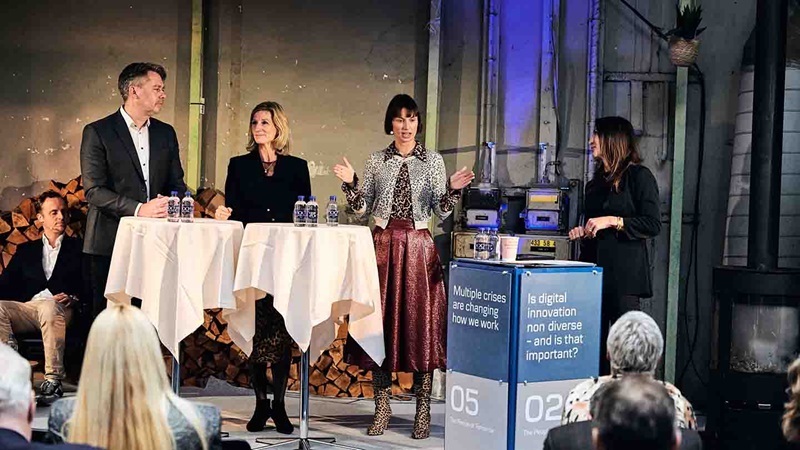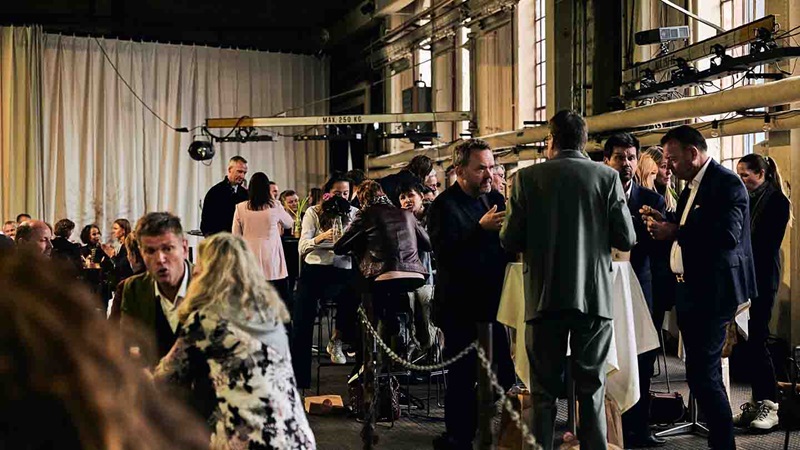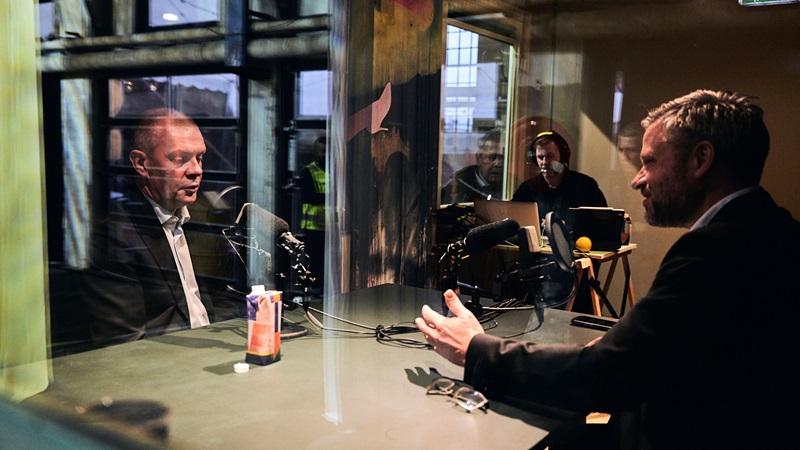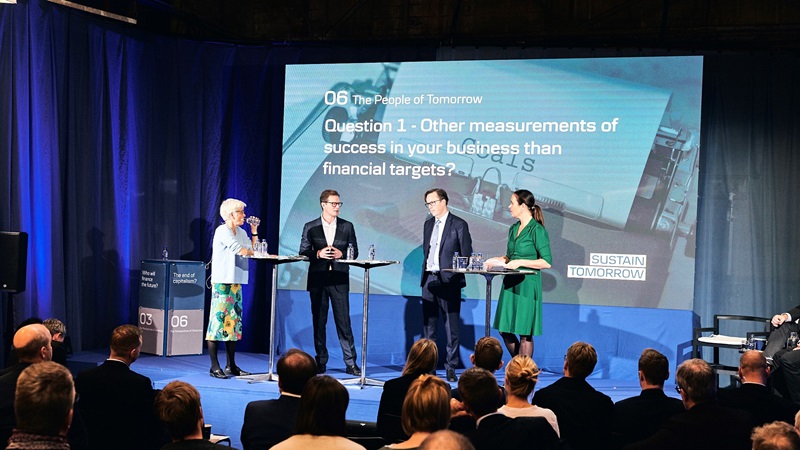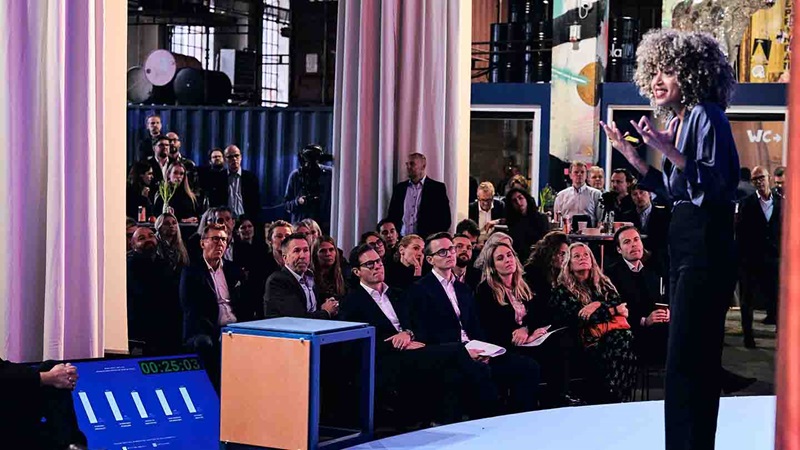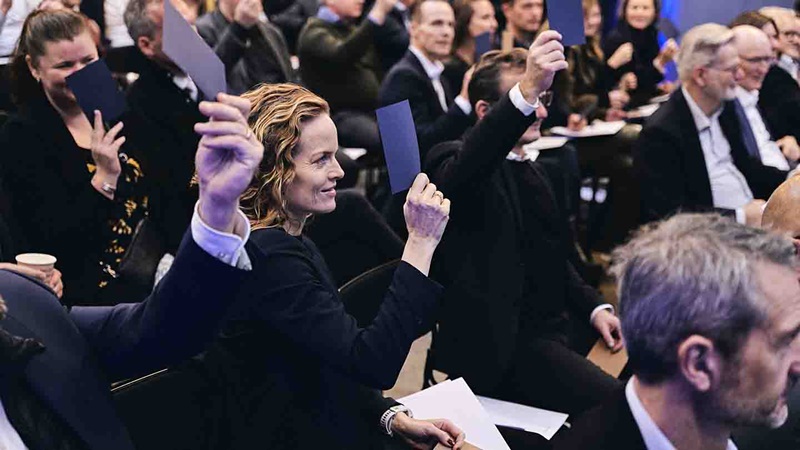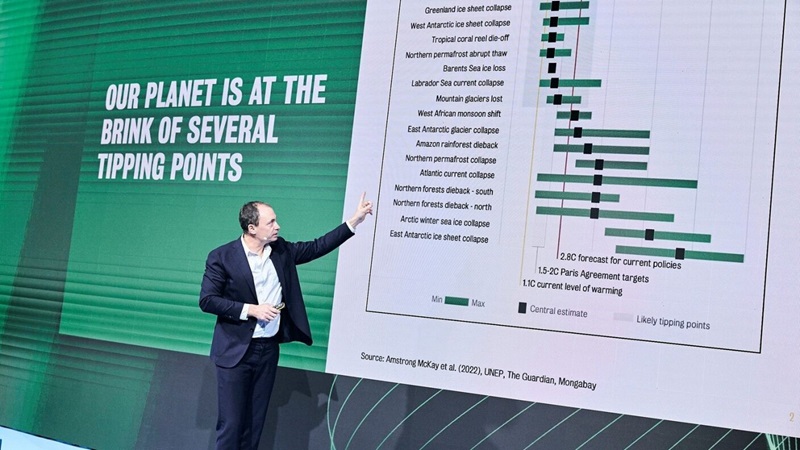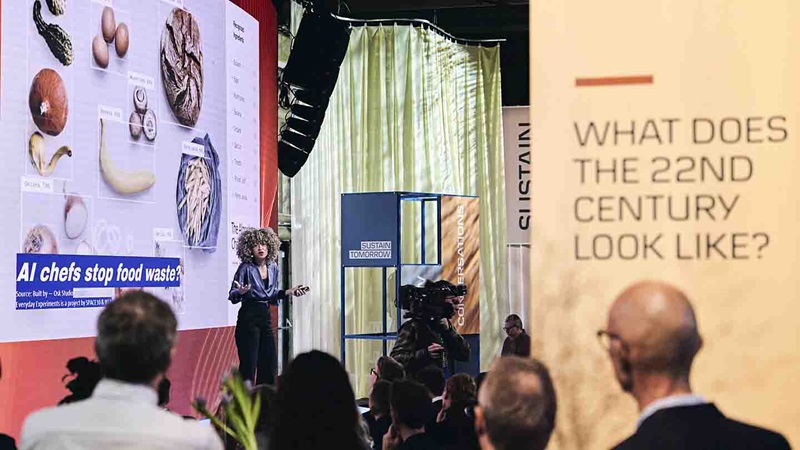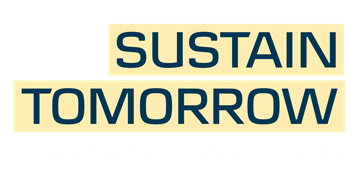
Sustain change for a better tomorrow
Can we solve our environmental problems in a capitalist world? And is digital innovation as diverse as we think?
Under the heading Sustain Tomorrow, Danske Bank is inviting experts, businesses and opinion formers to a conversation on the global challenges of tomorrow.
The first of a series of initiatives was a conference on 14 November 2023, at which the 400 participants discussed six of the most critical challenges facing our societies. We celebrated todays initiatives and future possibilities. And paved the way for potential solutions.
We can initiate a conversation about potential solutions
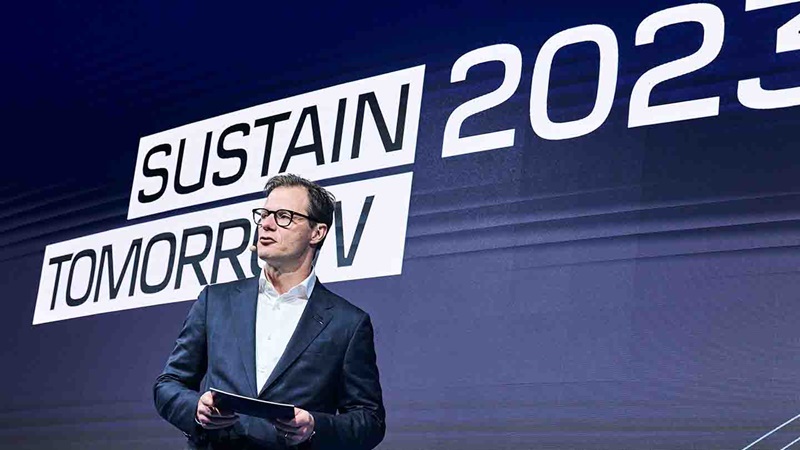
Every day, we as a bank must ask the important questions that help both our customers and ourselves develop in an ever-changing world. But we also have to debate global challenges and learn from each other across industries and national borders if we are to develop as a society.
Carsten Egeriis
We are not going to solve the world’s problems one Tuesday in Copenhagen, but we can initiate a conversation on what the solutions of the future might look like. The world is changing and evolving, so we cannot just lie back and regurgitate the answers we already know.CEO, Danske Bank
![]()
![]()
![]()
Keynote and conversation from the conference
Image gallery from the conference
The themes, challenges and questions we explored
The companies of tomorrow
-
How to understand the who in the large-scale changes needed in the green transition?
The green transition presents us with great challenges.
Value chains need to be redefined, and our current fossil-based energy system needs to transform into a sustainable energy system. No single player can do that.
We need for big organizations, investors and governments to find commons grounds and a long perspective. We need to identify and scale inventions. We are hoping for new technology and new inventions to help pave the way. But hope alone will not get us there.
We need to rethink regulation and business models and not least how and who to partner up. The changes we are facing require immense funding, technological capabilities and a deep and comprehensive skillset. But fortunately, we already have good cases to learn from. -
Why offering a superior product, solid returns and ESG compliance is not enough
We know profit and purpose need to go hand in hand. We know of compliance, ESG and triple bottom lines. But what if customers, employers and society look beyond compliance? What if generosity is what we increasingly measure companies by?
Just as we are drawn to generous people, generous companies win our hearts and wallets.
What does generosity means for companies; why is it important and why can it succeed? Maybe being generous and making a profit is not an either-or.
The people of tomorrow
-
Tech and digital is at the heart of our innovation and progress. So should diversity and inclusion be. But maybe digital innovation is not as diverse as we would like it to be.
Organisations increasingly focus on diversity and inclusion. We see more transparency across the Nordics, and we are continuously developing our conversations around the many aspects of diversity and inclusion.
But are we paying enough attention to how digital, one of the main drivers of innovation, might not be as diverse and inclusive as we would like?
Apps do not have a gender, but maybe it does matter if apps are developed by are too homogenous group. AI might just be code and algorithms – but it holds biases and values. We are becoming more aware that the development and deployment of digital and AI systems could exacerbate existing inequalities and biases. -
A number of independent global crises might be the perfect storm changing how and why we work.
We are changing how we work. Many think we are in the middle of a paradigm shift shaping the meaning of work for many in the Nordics. We see the signals and we sense things a moving, but we might just have seen the beginning.
The different global crises are at the epicentre of this change. We know a crisis can change how we see ourselves and the world. This conversation explores how the sum of the crises are influencing people, organisations and how we work in the Nordics.
The perspectives of tomorrow
-
Is capitalism and the paradigm of growth responsible?
Capitalism has historically fuelled growth and prosperity in the Nordics. It can be argued that growth is indeed a prerequisite of our Nordic capitalist welfare system. At the same time, we are rightfully worried about our overutilization of the planet.
We explore the paradox between a societal system focused on GDP growth and an increasingly over utilized planet.
Can we solve the environmental problems we are facing within the system that have caused them and how to understand Green Growth and the critic it is receiving? -
What to expect in future financing and if it matters if the money come from the Nordics, EU, US or China
It is a role of financial institutions to secure frictionless movement of capital between investors and good ideas. And we need a lot of ideas and innovation for good.
But with investments becoming ever more global and with the geopolitical tensions we are seeing, how to think of ideology, national and regional interests and classic capitalism? And what is the role of regulators – and at what level: national, Nordic or EU?
A selection of the experts who contributed

Frederikke Antonie Schmidt
Founder, Roccamore

Mette Kaagaard
CEO, Microsoft DK

Casper Klynge
SVP, Dansk Erhverv

Angela Oguntala
Futurist & Founding Partner, Greyspace

Tommy Ahlers
Entrepreneur & investor

Peter Mogensen
CEO, Kraka
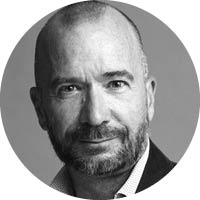
Flemming Splidsboel
Senior Researcher, Foreign policy & diplomacy, DIIS

Lars Sandahl Sørensen
CEO, Dansk Industri
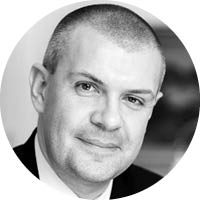
Bjarne Corydon
CEO & Editor in Chief, Dagbladet Børsen

Carsten Egeriis
CEO, Danske Bank

Poul Polman
Business leader, climate and equalities campaigner

Ulrikke Hermann
Economic Journalist & Author

Coming up!
Going forward, Sustain Tomorrow will be a conversation platform for debating the topics Danske Bank is keen to shed light on. All debates will be an invitation to discuss the most important issues of our time – the global challenges in an ever-changing world. Future initiatives will include virtual formats, conferences, local physical labs, podcasts and more.
Activities will take place across the Nordic countries.


